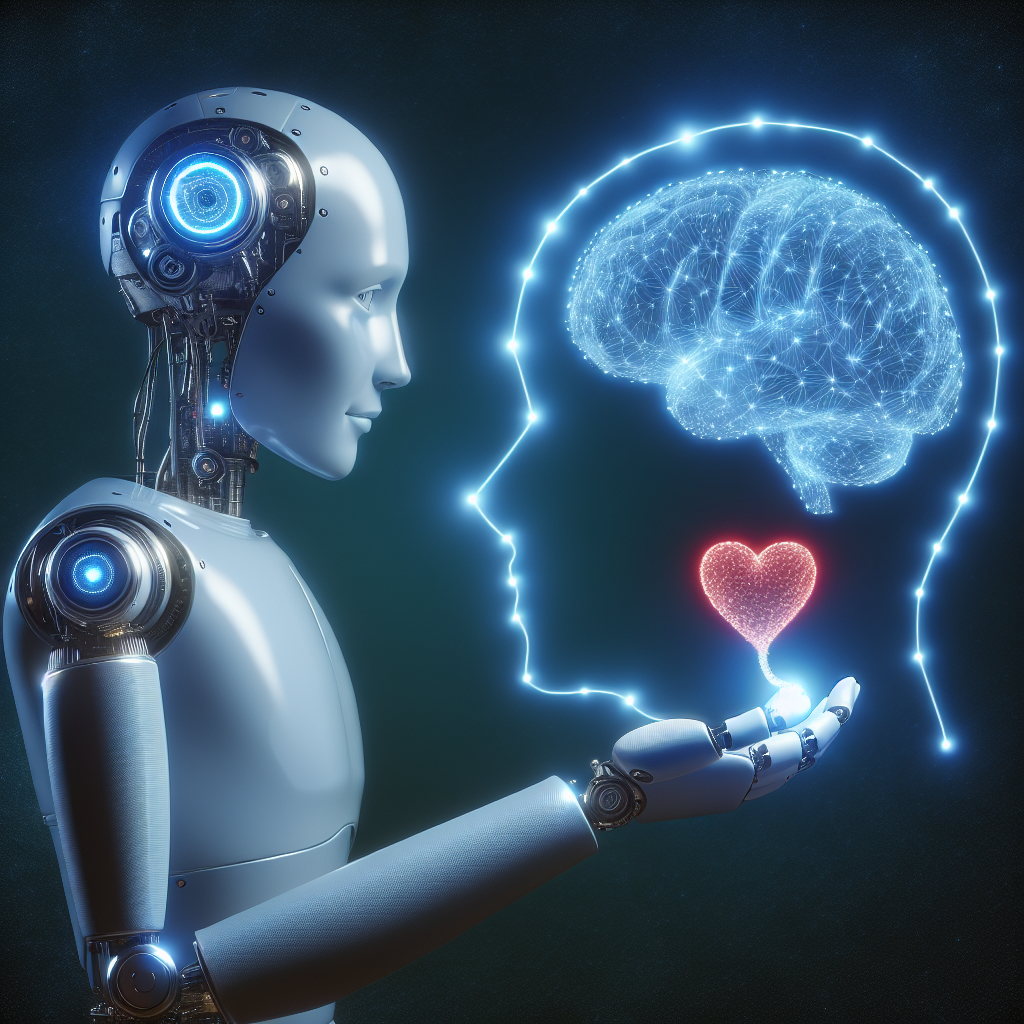Artificial Intelligence (AI) has been making significant advancements in various fields, including healthcare. One area where AI shows great promise is in the field of mental health. With the increasing prevalence of mental health disorders worldwide, there is a growing need for innovative solutions to improve access to mental health care and support.
AI has the potential to revolutionize the way mental health care is delivered by providing personalized, efficient, and cost-effective solutions. From early detection and diagnosis to treatment and ongoing support, AI can play a crucial role in addressing the mental health crisis.
Early Detection and Diagnosis
One of the key advantages of AI in mental health is its ability to analyze large amounts of data to detect early signs of mental health disorders. By analyzing factors such as social media activity, speech patterns, and physiological data, AI algorithms can identify patterns that may indicate the presence of a mental health condition.
For example, researchers have developed AI systems that can analyze social media posts to identify individuals at risk of depression or suicide. By detecting warning signs early on, these systems can help individuals get the support they need before their condition worsens.
Treatment and Intervention
AI can also assist in the treatment and intervention of mental health disorders by providing personalized recommendations and support. For example, AI-powered chatbots and virtual therapists can provide 24/7 support to individuals experiencing mental health crises. These tools can offer coping strategies, relaxation techniques, and referrals to mental health professionals when needed.
In addition, AI can help therapists and clinicians make more informed decisions by analyzing patient data and providing insights into treatment options. By leveraging AI tools, healthcare providers can deliver more effective and tailored interventions to their patients.
Monitoring and Support
AI can also play a crucial role in monitoring and supporting individuals with mental health disorders on an ongoing basis. For example, wearable devices equipped with AI algorithms can track physiological data, such as heart rate and sleep patterns, to provide insights into an individual’s mental health status.
Moreover, AI-powered platforms can analyze data from therapy sessions and self-assessment tools to track progress and identify areas for improvement. By leveraging these insights, individuals can receive personalized recommendations for self-care activities and interventions to manage their mental health effectively.
Challenges and Considerations
While the potential benefits of AI in mental health are significant, there are also challenges and considerations that need to be addressed. One of the main concerns is the ethical use of AI in mental health, including issues related to privacy, data security, and algorithm bias.
Furthermore, there is a need for robust regulations and guidelines to ensure the responsible development and deployment of AI systems in mental health care. Healthcare providers must also receive proper training and education to effectively integrate AI tools into their practice and ensure patient safety.
FAQs
Q: Can AI replace human therapists in mental health care?
A: While AI can provide valuable support and assistance in mental health care, it is unlikely to replace human therapists entirely. Human therapists offer a unique level of empathy, understanding, and emotional support that AI cannot replicate. AI tools should be seen as complementary to human therapists, enhancing the quality and efficiency of mental health care.
Q: Is AI in mental health care secure and confidential?
A: Ensuring the security and confidentiality of patient data is a top priority when using AI in mental health care. Healthcare providers must adhere to strict data protection regulations and guidelines to safeguard patient information. Additionally, AI algorithms should be designed with privacy and security in mind to prevent unauthorized access or data breaches.
Q: How can individuals access AI-powered mental health tools?
A: Individuals can access AI-powered mental health tools through various channels, including mobile apps, online platforms, and telehealth services. Many healthcare providers offer AI-based solutions as part of their mental health care services. It is essential to research and choose reputable providers that prioritize patient safety and privacy.
In conclusion, AI has the potential to transform mental health care by providing personalized, efficient, and cost-effective solutions. By leveraging AI tools for early detection, diagnosis, treatment, and ongoing support, individuals can receive the care they need to manage their mental health effectively. While there are challenges and considerations to address, the promising partnership between AI and mental health offers hope for a brighter future in mental health care.

